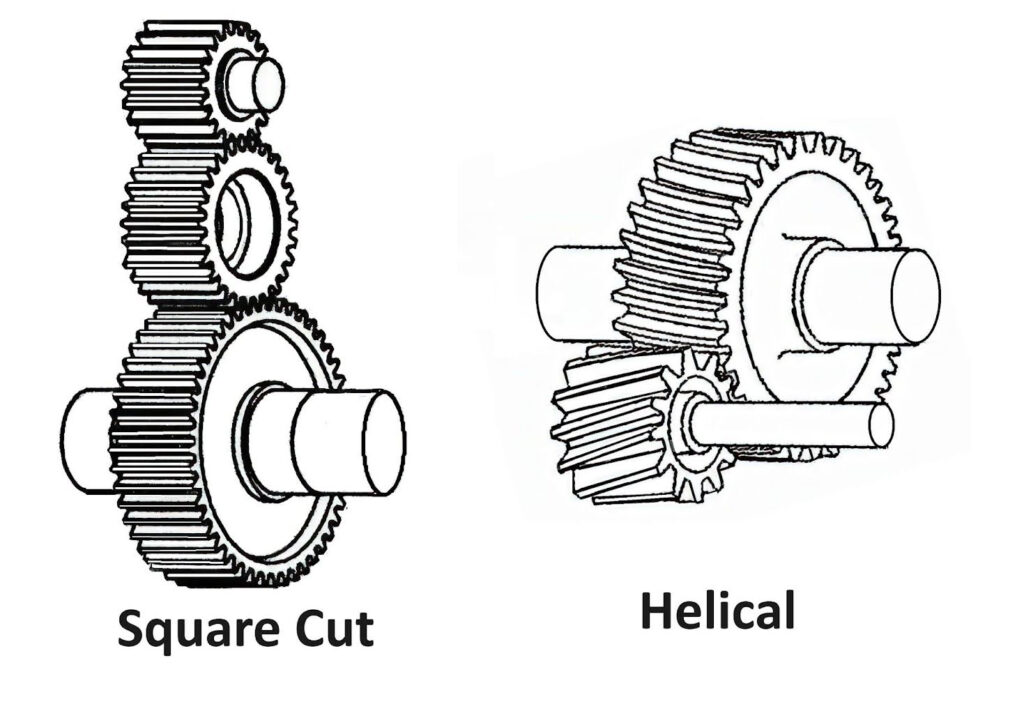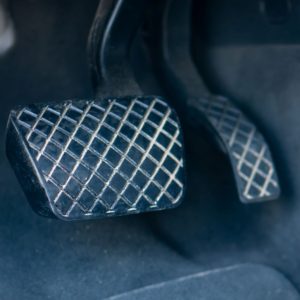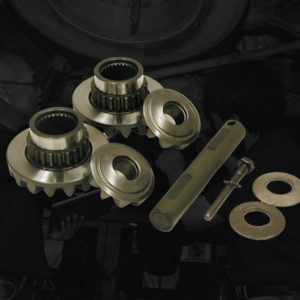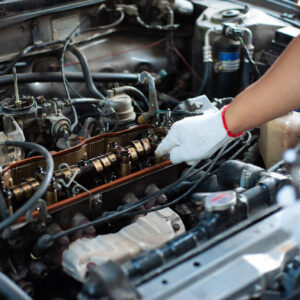Straight-cut gears are well-known for the loud racket they make under the hood of the fastest race cars, but what else makes them stand out from other transmission setups aside from all that noise?
Advantages of Straight-Cut Gears
Straight-cut transmissions are very popular among racers and for good reason. Here are a few advantages of straight-cut gears:
Don’t Produce an Axial Load
Ask anybody who drives a vehicle with a straight-cut gear transmission and they’ll tell you that the biggest advantage is that straight-cut gears don’t produce an axial load. Axial load refers to the force acting along the axis when the teeth of helical gears slide against each other. This force restricts the amount of torque that can be applied through the gears before the assembly fails.

Less Energy Loss Through Heat
Without an axial load, straight-cut gears don’t lose as much energy due to heat. This makes them a lot more efficient than helical gears, which lose more energy due to an increase in friction and heat.
Easy To Assemble
Straight-cut gears are much easier to assemble than helical gears. Unlike helical gears, straight-cut gears don’t produce any thrust load, so they don’t need any output shafts or bearings. They also don’t need a synchronizer, which makes straight-cut gear assemblies much more straightforward.
Decrease the Car’s Overall Weight
Transmissions with helical gears tend to come with heavy-duty casings and shafts. All these extra parts add a lot of weight to the vehicle. Since straight-cut gears don’t produce axial load, they don’t need heavy-duty transmission casings and parts, thus making them lighter.
Cost Less Than Helical Gears
Due to their simpler design, straight-cut gears also cost less than helical gears. Their teeth are designed in straight lines parallel to the gear’s centerline, which makes them much easier and cheaper to produce than helical gears.

Disadvantages of Straight-Cut Gears
As amazing as straight-cut gears sound, they come with their fair share of disadvantages too. Here are some of the cons of straight-cut gears:
Produce More Noise and Vibration
If you’ve ever watched a car race, then you know just how noisy race cars can get. That distinct whining sound results from the race car’s straight-cut gears constantly meshing into one another. The metal-on-metal contact causes them to produce more noise and vibration than regular vehicles with helical gears.
Can’t Carry Heavy Loads
Unlike helical gears, straight-cut gears can’t carry large, heavy loads. Helical gears have diagonally positioned teeth, which can efficiently distribute the force applied to them in a way that the teeth of straight-cut gears can’t.
That being said, straight-cut gears are used in heavy truck transmissions because they don’t produce axial loads, they’re easy to maintain, and they don’t cost as much as helical cut gears.
Truck drivers synchronize as they shift gears by watching the tachometer and working the throttle and clutch accordingly to bring the output gear to the same speed as the input gear. Light vehicle transmissions require more parts because they’re automatically synchronized between shifts. But those gears are massive and there are a lot of them in a heavy truck transmission.
Straight-cut gears are used in heavy truck transmissions because they don’t produce axial loads, they’re easy to maintain, and they don’t cost as much as helical cut gears.
– Richard McCuistian, ASE Certified Master Automobile Technician
Not Suitable for City Cars
Because they produce a lot of noise, straight-cut gears aren’t that great for city cars. Just imagine how distracting it would be to drive next to a sedan that was just as noisy as a race car.
Straight-cut gears also have a shorter life span than helical gears, making them less than ideal for everyday driving. However, straight-cut gears are used for reverse gear on most manual transmissions and transaxles.

What Are Straight-Cut Gears?
The definition of a straight-cut gear is pretty straightforward. Just as its name suggests, a straight-cut gear is a type of gear with teeth that point straight out from the center.
How Does a Straight-Cut Gear Work?
In a straight-cut gearbox, the gears are arranged evenly around a circular body to allow the teeth to interlock with one another. Straight-cut teeth make full contact each time and for longer periods, almost as if they’re slamming into place against each other.
Straight-Cut Gears vs. Helical Gears: What’s the Difference?
Unlike straight-cut teeth, helical teeth are diagonally arranged from the center. Helical gears have a larger contact ratio than straight-cut gears, which allows them to transmit a larger force and bear heavier loads.
They’re also smoother and quieter than straight-cut gears, making them much more suitable for city cars. However, their additional axial load takes away from their overall efficiency due to a decrease in power output.
Are Straight-Cut Gears Better Than Helical Gears?
If you’re looking for a definite answer to this question, you’re out of luck. The better choice between these two types of gear will ultimately depend on what you’re looking for. If you drive a regular city car, then you’re probably better off with helical gears. If you’re a professional racer, then a straight-cut transmission is the best choice.
Where to Get Transmission Parts for Your Ride
Straight-cut gears, known for their efficiency and strength, play a crucial role in many high-performance vehicles. They provide the robust power transfer needed for peak performance.
Whether you’re looking to upgrade or replace parts in your transmission, knowing where to find quality components is essential. CarParts.com is your one-stop shop when it comes to transmission parts like torque converters, shift forks, and more.
Here, ordering what you need is quick and easy. Simply fill out our vehicle selector and use the search filters to check out compatible parts that match your preferred brand, price, and specs.
What’s more, you don’t have to wait a long time for your order to arrive. Thanks to our strategically located warehouses across the country, you can expect your orders to arrive at your doorstep in as fast as two business days. If you have questions, we have a 24/7 customer service team ready to assist you anytime.
Shop for new transmission parts now!
Any information provided on this Website is for informational purposes only and is not intended to replace consultation with a professional mechanic. The accuracy and timeliness of the information may change from the time of publication.






























